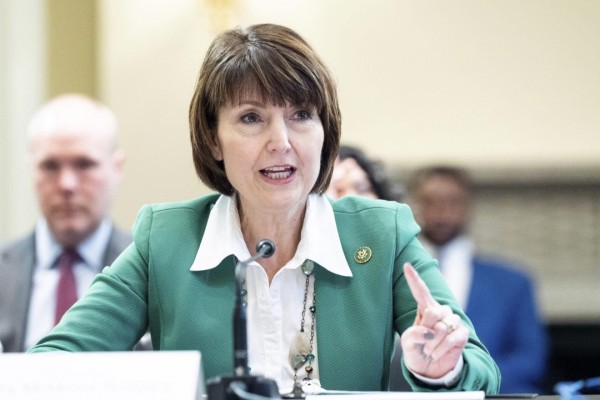Mirroring Senate counterparts, House committee advances PBM reforms
May 28, 2023
Source: https://endpts.com/
 298
298

The House Energy & Commerce Committee advanced multiple bills to the House floor in a seven-hour hearing Wednesday, some of which included measures to address drug pricing transparency and PBMs.
The highlights included two bills, among other healthcare measures, that would advance accountability around PBMs and on drug pricing, including the embattled 340B program. One bill, also known as the “Promoting Access to Treatments and Increasing Extremely Needed Transparency,” or PATIENT Act, would ban spread pricing where PBMs can charge that state more than they reimburse pharmacies. That same ban was included in a Senate bill that also recently advanced out of committee.
The House bill, introduced by bipartisan sponsors Cathy McMorris Rodgers (R-WA), committee chair, and Frank Pallone (D-NJ), passed unanimously at 49-0. Both the House and Senate bills would also add new transparency measures around PBMs.
Rodgers said during the committee meeting that the bill is “the product of strong bipartisan work” that would increase transparency — especially when it comes to patients finding out the price they would pay for care, who owns their doctor’s office, and what pharmacy benefit managers, or PBMs, make off of medication.
Rep. Buddy Carter (R-GA) took the opportunity to slam PBMs — noting that his bill introduced in a subcommittee markup last week, aptly called the “Drug Price Transparency in Medicaid Act of 2023,” was included.
“For years, PBM practices in Medicaid-managed care have obscured the true cost of prescription drugs, wasted hundreds of millions of taxpayers dollars, and devastated community pharmacies by engaging in a practice known as spread pricing,” Carter said, adding that “PBMs charge state Medicaid-managed care programs more for prescription drugs than they reimburse pharmacies, allowing the PBM to pocket the difference, or to spread, as excess profit.”
The committee also narrowly advanced a 340B bill to the House floor, called HR 3290, which would amend the Public Health Service Act to provide oversight and transparency over 340B, which is a ballooning program that requires pharma manufacturers participating in Medicaid to sell outpatient drugs at discounted prices for uninsured and low-income patients. The advanced 29-22.
Rep. Larry Bucshon (R-IN), who sponsored the bill, said he is a strong supporter of the 340B program. However, he added that “if you asked me to tell you what this program actually looks like, at a facility level, and what covered entities do with their savings, I truly couldn’t tell you at this point.”
Bucshon continued, saying that “the only way for us as lawmakers to understand what this program looks like for our constituents is to go to each hospital and ask them for their data.”
Pallone spoke against the 340B bill, saying that additional reporting seen in the bill “will not necessarily lead to a clearer picture of how the program is working.” He said that reports wouldn’t include opportunities for covered entities under 340B to explain other ways they might use savings to expanded care, citing voluntary reports about using savings to provide low cost drugs, improve medication management and more.
“These activities will provide value and benefits for patients, but would not necessarily be captured in the reporting metrics listed in the bill. By limiting the view of the program to just a narrow band of metrics, the reports produced by this legislation could imply that the program was not providing the benefits, setting covered entities up for cuts in the future that could hurt patients,” Pallone added.
This comes just one day after the House Oversight Committee held a hearing on PBMs.
“I believe that the profit-seeking motive in the pharmaceutical industry is out of control, and I think that it is hurting people,” Rep. Alexandria Ocasio-Cortez (D-NY) said at the hearing Tuesday.
By editorRead more on
- The first subject has been dosed in the Phase I clinical trial of Yuandong Bio’s EP-0210 monoclonal antibody injection. February 10, 2026
- Clinical trial of recombinant herpes zoster ZFA01 adjuvant vaccine (CHO cells) approved February 10, 2026
- Heyu Pharmaceuticals’ FGFR4 inhibitor ipagoglottinib has received Fast Track designation from the FDA for the treatment of advanced HCC patients with FGF19 overexpression who have been treated with ICIs and mTKIs. February 10, 2026
- Sanofi’s “Rilzabrutinib” has been recognized as a Breakthrough Therapy in the United States and an Orphan Drug in Japan, and has applied for marketing approval in China. February 10, 2026
- Domestically developed blockbuster ADC approved for new indication February 10, 2026
your submission has already been received.
OK
Subscribe
Please enter a valid Email address!
Submit
The most relevant industry news & insight will be sent to you every two weeks.



